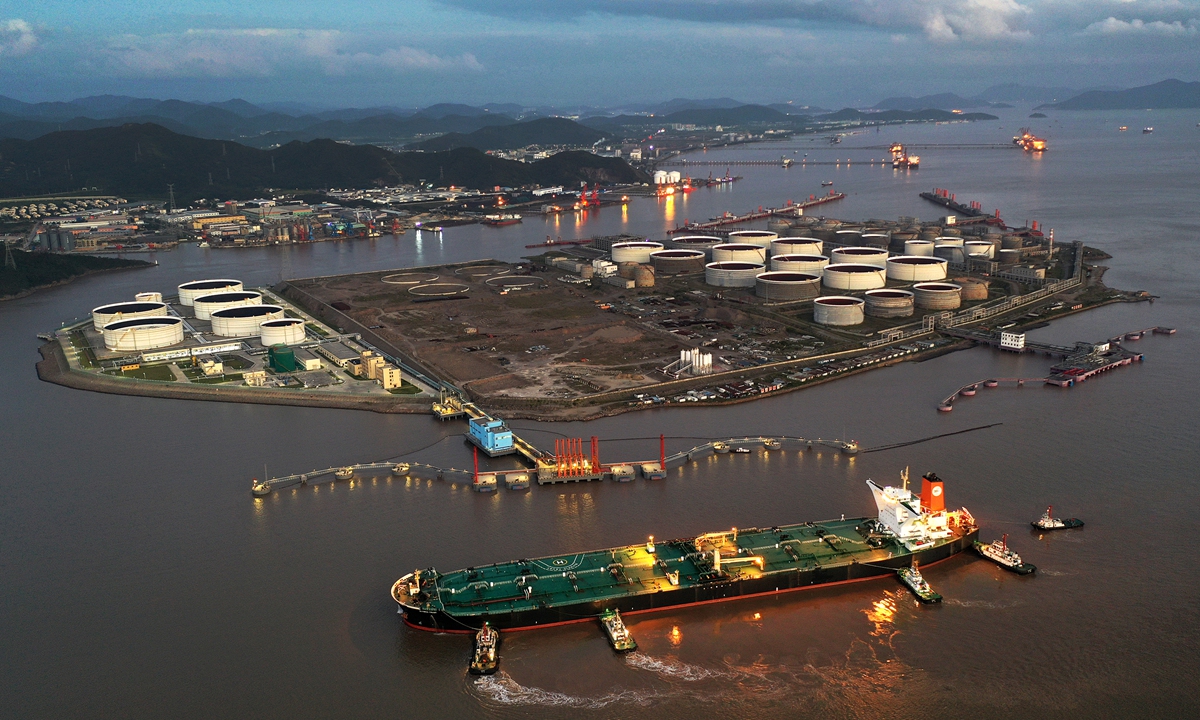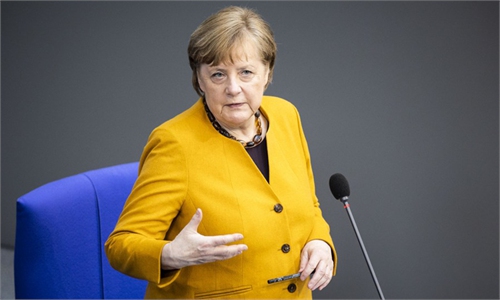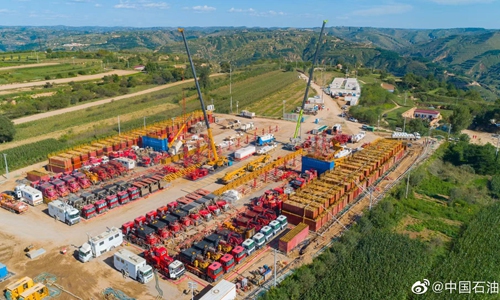
An oil tanker berths at a receiving facility at the Port of Zhoushan, East China's Zhejiang Province. The tanker, Olympic Trust, is the third 300,000-ton vessel to arrive at the port so far this month. In August, China imported 47.48 million tons of crude, according to National Bureau of Statistics data. Photo: cnsphoto
China launched the trading of crude oil options on the Shanghai International Energy Exchange on Monday that is open to overseas investors, in a bid to better manage risks faced by both domestic and overseas entities and in another big step in the country's financial opening-up.
The crude oil options, along with the palm oil options that started trading on the Dalian Commodity Exchange on Friday, are the first yuan-denominated options contracts listed in China that are open to overseas investors.
The first crude oil options expire in September and October, with 96 call options and put options, China Central Television reported on Monday. In addition, the available cash in the margin accounts of trading entities must be at least 1 million yuan ($155,000) in equivalent foreign currencies, with a minimum of 500,000 yuan for individuals, the report said.
Industry experts noted that the crude oil options will provide more risk management tools for domestic companies such as oil refining and air transport enterprises, improve the industry's competitiveness, and raise the profile of domestic oil-related enterprises in international markets.
Chinese oil refiners need better hedging tools amid the intense volatility of crude oil prices lately, with their willingness to use commodity futures to hedge and stabilize production on the rise, Zhu Fang, deputy secretary-general with the China Petroleum and Chemical Industry Federation, said at the launch event on Monday. "The trading of crude oil options will enrich risk management tools," he said.
China has become the second-largest crude oil consumer and largest importer. Zhu said that the country's consumption of crude oil reached 736 million tons in 2020, and about 73.5 percent of that was imported.
Pan Yixin, executive vice chairman of the China Air Transport Association, said that crude oil options will also benefit domestic air transport companies.
China is the second-largest consumer of aviation fuel in the world, using approximately 1 million barrels per day in 2019, accounting for about 12.5 percent of global usage.
The consumption of aviation kerosene accounts for around 30 percent of airlines' total costs, so there's strong demand from airlines to manage the risks associated with crude oil prices.
China launched crude oil futures contracts in 2018, which played an important role in stabilizing prices amid the COVID-19 pandemic and bulk commodity price fluctuations.
Jiang Yan, chairman of the Shanghai International Energy Exchange, said that the trading volume of Shanghai crude oil futures totaled 41.59 million transactions last year, worth 11.96 trillion yuan.
He added that the price reflects the demand-supply relationship in the petroleum market in China and the Asia-Pacific region more accurately, serving as a supplement to US and EU crude oil futures.
Global Times



